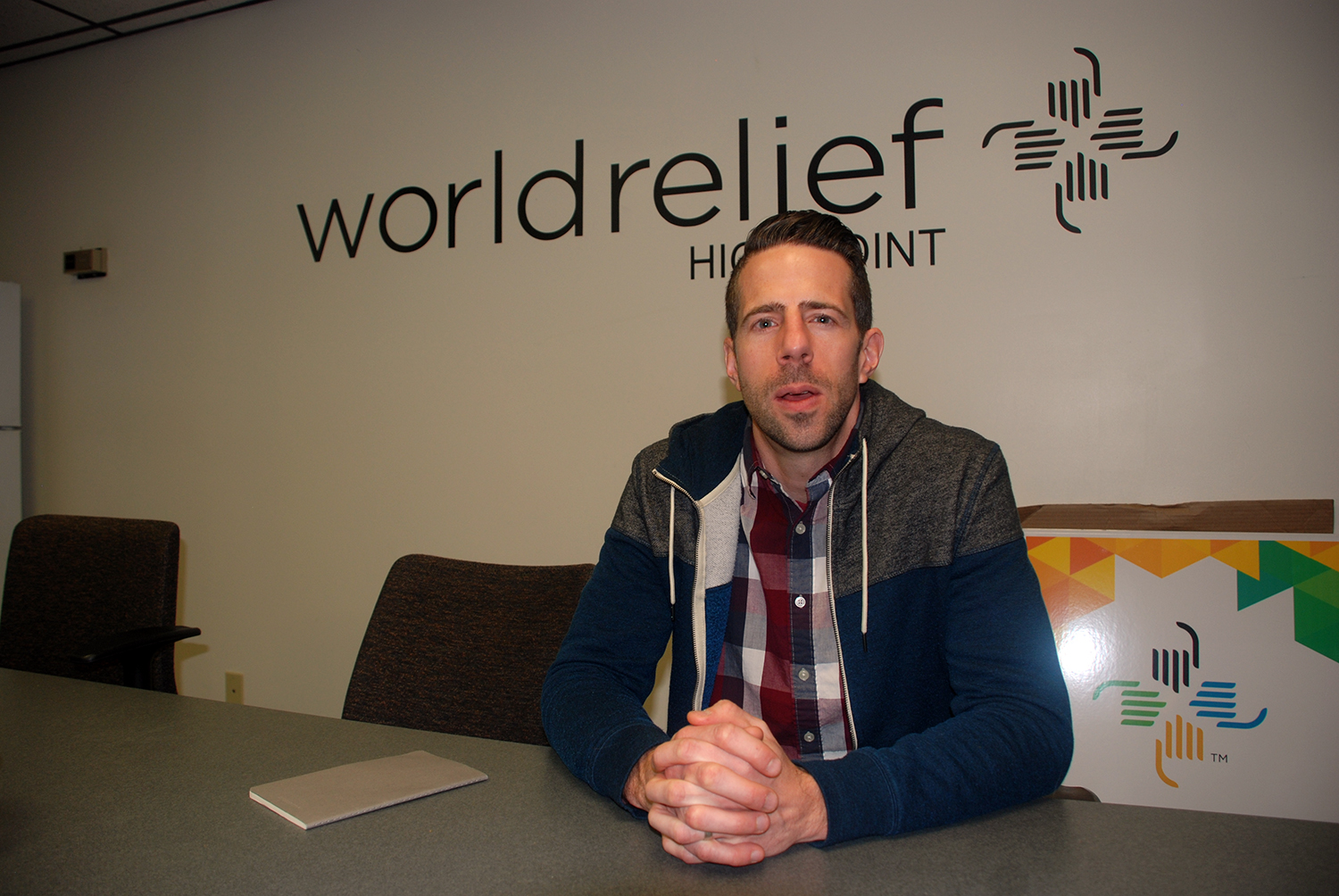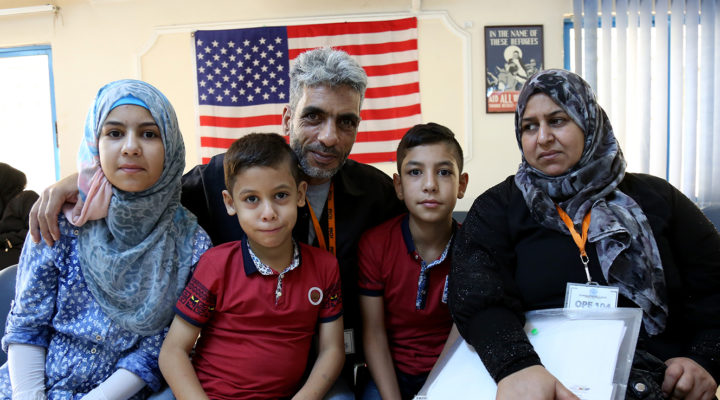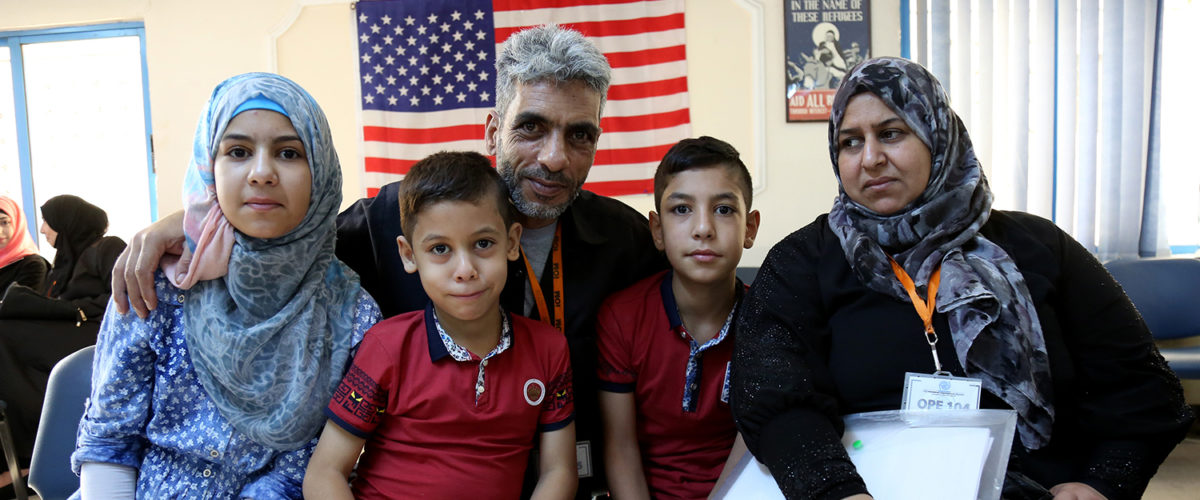After President Trump’s executive orders, the future of U.S. refugee resettlement programs is uncertain. This is the first in a series on what that might mean for Syrians fleeing their war-torn country. Previous stories: For Syrian refugees, recruiter’s call signaled time to flee; Volunteers in refugee programs fulfilling biblical mandate to care for strangers
President Trump’s refugee executive order has sparked heated debate over the resettlement process, but how does it work? How do these people get here now?
It’s important to know that “refugee” has a distinct definition. Refugees are not persons fleeing poverty and looking for better job prospects. Neither are they internally displaced persons who have fled their homes but remain in their country.
“Refugees” are fleeing persecution and personal danger based on race, people group, political affiliation or war. They seek temporary asylum in a second country — such as Syrians in Jordan — and then are resettled to a third country, such as the United States.
Best estimates put the number of refugees at 21.3 million, with another 44 million persons displaced within borders of their own country. Half the population of Syria is homeless, including 5 million who have left the country and 7 million internally.
With 65 million people on the move around the world, the number of displaced humans is the highest at any time in history, including during World War II. The United States is resettling less than one-half of 1 percent.
Refugees who survive the arduous trek from war zone or disaster and make it to a refugee camp apply for resettlement through the United Nations.
Less than 1 percent of refugees are ever resettled to a third country. This saddles an enormous burden on the backs of countries such as Turkey, Lebanon and Greece, early stops on the route from northern Africa and the Middle East.
The U.N. representative will identify a nation that is a good match and refer the refugee to representatives of that nation. If the recommendation is to the U.S., the vetting process begins then and may take 18 months.
Of course, the refugee family may have been sheltered for years in a “temporary” camp before they ever are identified for resettlement.
In the United States the government does not resettle persons. Instead, it contracts with nine nonprofit agencies that do the legwork, primarily through volunteers they recruit and train — heavily through churches.
When a refugee is cleared for resettlement to the U.S., one of the nine agencies is contacted. The agency notifies its volunteers and they prepare for the family’s arrival.
Joe McCann, director of church engagement for the High Point and Winston-Salem, N.C., offices of World Relief, said the refugee crisis provides churches “an amazing opportunity to love a group of people who you would have no opportunity to love otherwise.”

Joe McCann, director of church engagement for the High Point and Winston-Salem, N.C., offices of World Relief.
World Relief’s mission is not to resettle refugees, but “to empower the local church to serve the most vulnerable.” Staff engages church volunteers to focus on relationship, he said, giving the church opportunity “to love and serve refugees and to be influenced and impacted by refugees they love and serve.”
Resettlement is dramatically different from volunteering at a soup kitchen or passing out sandwiches in the park. Committing to resettle a family from another nation who likely doesn’t speak your language opens the door to relationship.
“That can be a hard sell sometimes,” McCann said. “But once a church or individual takes a shot at it, it is one of those experiences that will really change them. It’s truly a way to live out the gospel in a very tangible way.”
World Relief asks a church that wants to resettle a refugee family to establish a Good Neighbor committee of five-to-15 people with a commitment of six months. Each person needs to undergo a background check and a four-hour training. Teams are asked to make a $1,000 contribution to the refugee resettlement program of World Relief.
“The end goal is relationship,” McCann said. “The family arrives and feels immediately connected. People care about them, and they have a network and care system.”
The truth is that many have come from professional careers with a good education, a comfortable house and a position of honor in their communities. They come as a refugee, frightened, weary and poor and settle into a small apartment stocked with donated furniture and strange food, provided by strangers who don’t speak their language.
As quickly as possible those persons in the family who can work are expected to secure a job. McCann said 90 percent of employable adults have a job within 90 days. In those areas with a history of refugee resettlement, employers are eager to hire them, as they have a reputation for hard work and dependability.
The myopic American perspective may be that any refugee coming from any country would think they have traveled the yellow brick road to a magnificent Land of Oz just to arrive in this country.
The truth is that many have come from professional careers with a good education, a comfortable house and a position of honor in their communities. They come as a refugee, frightened, weary and poor and settle into a small apartment stocked with donated furniture and strange food, provided by strangers who don’t speak their language.
Their credentials, degrees and certifications count for nothing. While Americans may resent what appears to be a free ride or endless handouts, they walk a rough road.
A refugee family is eligible for the same level of public assistance for which a citizen with the same income level would be eligible. They qualify for federally subsidized housing based on income level.
Matthew Soerens, U.S. director of church mobilization for World Relief, said the “vast majority” of refugees where he lives in Illinois pay full rent market rate. Refugees sponsored by an employer or family member are not eligible for means tested public benefits, he said.
“Our goal is not just to welcome and integrate refugees, it’s also to empower the local church to serve. Hopefully as Christians we’re concerned about the persecuted church in other parts of the world. This is a unique opportunity to stand with them.”


